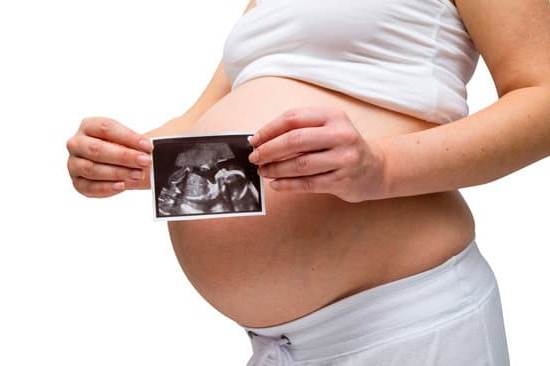Pregnancy is a time of immense joy and anticipation, but it can also bring about a myriad of concerns, including weight fluctuations. One common question that pregnant women often ask themselves is: “Why am I losing weight during pregnancy 2nd trimester?” The second trimester, typically known as the “honeymoon phase” of pregnancy for many women, can be a period where unexpected weight loss becomes a cause for worry.
During the second trimester of pregnancy, the body undergoes significant physiological changes to accommodate the growing fetus. These changes can impact appetite levels, metabolism, and nutrient absorption, ultimately leading to weight loss in some expectant mothers. Additionally, factors such as morning sickness and nausea commonly experienced during this time can further contribute to decreased food intake and subsequent weight loss.
Nutrition plays a crucial role in maintaining a healthy weight during pregnancy. Ensuring adequate intake of essential nutrients like folic acid, iron, and calcium is vital for both maternal health and fetal development. However, navigating through dietary requirements can be challenging, especially when experiencing symptoms like nausea or food aversions. Managing these challenges effectively is key to addressing weight loss concerns during the second trimester of pregnancy.
Understanding the Science
During the second trimester of pregnancy, many women may find themselves questioning, “Why am I losing weight during pregnancy 2nd trimester?” It is essential to understand the physiological changes that take place in the body during this period, which can contribute to weight loss. Listed below are some factors that play a role in weight fluctuations during the second trimester:
- Increased metabolism: During pregnancy, the body’s metabolism tends to increase, leading to a higher calorie expenditure. This increase in metabolic rate can result in weight loss if dietary intake does not match the caloric needs of both the mother and growing fetus.
- Changes in appetite: Hormonal fluctuations during the second trimester can affect appetite levels, causing some women to experience decreased hunger or food aversions. This change in eating patterns can impact weight gain during pregnancy.
- Fluid retention: While it may seem counterintuitive, some women may experience a reduction in water retention during the second trimester, leading to temporary weight loss as excess fluids are eliminated from the body.
It is important to note that while some weight loss during pregnancy is considered normal for certain individuals, significant or sudden drops in weight should not be ignored. Consultation with a healthcare provider is recommended if you have concerns about your weight or overall health during pregnancy. Additionally, focusing on proper nutrition and maintaining a healthy lifestyle can help support both you and your baby’s well-being throughout this crucial stage of development.
Nutritional Needs
During pregnancy, proper nutrition is crucial for the health of both the mother and the developing baby. It’s not uncommon for women to experience weight loss during the second trimester due to various factors, highlighting the importance of meeting nutritional needs during this critical time. The second trimester is a period of rapid growth and development for the fetus, requiring additional nutrients to support this process.
Importance of Proper Nutrition
Nutrient-dense foods play a key role in providing essential vitamins and minerals needed for fetal growth and development. As a pregnant woman’s body undergoes numerous changes to accommodate the pregnancy, it’s essential to consume a balanced diet to support her own health as well. Adequate intake of nutrients like folate, iron, calcium, and protein is vital during pregnancy to prevent deficiencies that could impact both maternal and fetal health.
Meeting Dietary Requirements
Pregnant women should focus on consuming a variety of nutrient-rich foods from all food groups to ensure they are meeting their increased dietary requirements. Incorporating plenty of fruits, vegetables, whole grains, lean proteins, and dairy products into each meal can help pregnant women obtain essential nutrients. Additionally, taking prenatal vitamins as recommended by healthcare providers can help fill in any nutrient gaps and support overall maternal and fetal well-being.
It’s important for pregnant women experiencing weight loss during the second trimester to consult with their healthcare provider or a registered dietitian to assess their nutritional needs and develop a personalized plan to support healthy weight management while ensuring adequate nutrient intake. By prioritizing proper nutrition during pregnancy, women can help optimize their own health and that of their developing baby.
Morning Sickness and Nausea
When morning sickness and nausea affect a pregnant woman’s ability to eat an adequate amount of food, it can result in a calorie deficit, leading to unintentional weight loss. The body requires more nutrients and energy during pregnancy to support both the mother and the growing baby. Not being able to consume enough food due to nausea can hinder proper weight gain during this crucial period.
To combat the effects of morning sickness and nausea on appetite and weight loss during the second trimester, there are several strategies that pregnant women can try. Eating small, frequent meals throughout the day, staying hydrated, avoiding strong odors or triggers that worsen nausea, and seeking guidance from a healthcare provider for potential solutions are all important steps to take. Additionally, incorporating easily digestible foods like crackers or toast may help alleviate feelings of queasiness while providing essential nutrients.
| Morning Sickness Relief Tips | Benefits |
|---|---|
| Eat small, frequent meals | Prevents stomach from getting too full which may trigger nausea |
| Avoid strong odors | Keeping away from triggers that worsen nausea |
| Sip on ginger tea or ginger ale | May help relieve feelings of queasiness |
Stress and Emotional Factors
During pregnancy, especially during the second trimester, weight loss can be a cause for concern for many expecting mothers. Apart from physiological changes in the body, stress, anxiety, and emotional factors can also play a significant role in weight loss during this crucial period. Stress and emotional factors can impact a woman’s appetite, leading to reduced food intake and subsequent weight loss.
Impact of Stress on Weight Loss
Stress triggers the release of cortisol, also known as the stress hormone, which can affect metabolism and appetite regulation. As a result, some pregnant women may experience a decrease in appetite or even aversion to certain foods due to heightened stress levels. This can lead to inadequate calorie intake, causing weight loss during the second trimester.
Anxiety and Emotional Factors
Anxiety about the pregnancy itself, concerns about prenatal care, financial worries, or relationship issues can all contribute to emotional distress during pregnancy. These emotional factors can influence eating behaviors and nutrition choices, ultimately impacting weight gain or loss. It is essential for pregnant women experiencing high levels of stress or anxiety to seek support from healthcare providers or mental health professionals to address these emotional factors affecting their well-being and their baby’s development.
Coping Strategies
Managing stress and emotional factors during pregnancy is crucial for overall health and well-being. Practicing relaxation techniques such as deep breathing exercises, mindfulness meditation, prenatal yoga, or seeking counseling and support groups can help pregnant women cope with stress and anxiety effectively. Ensuring open communication with partners, family members, or friends about feelings of fear or uncertainty can also provide much-needed emotional support during this challenging time.
Physical Activity
During the second trimester of pregnancy, staying active and engaging in safe exercise routines can have a significant impact on overall health and well-being. Many pregnant women may be concerned about losing weight during this time, but incorporating proper physical activity can actually help maintain a healthy weight and support the body’s changes.
It is essential to consult with a healthcare provider before starting any exercise regimen to ensure it is safe for both the mother and the baby.
Safe exercise during pregnancy can help improve circulation, reduce stress, strengthen muscles needed for labor, and even alleviate some common discomforts such as back pain. Low-impact activities like walking, swimming, prenatal yoga, or gentle stretching exercises are generally recommended for pregnant women. These activities not only promote physical fitness but also contribute to mental well-being by releasing endorphins that help combat stress and anxiety.
It is crucial to listen to your body during pregnancy and adjust your exercise routine as needed. Always stay hydrated, wear appropriate clothing, and avoid high-intensity workouts that may cause strain or harm.
By incorporating safe physical activity into your daily routine during the second trimester, you can potentially help manage weight loss concerns while promoting overall health for both you and your growing baby. Remember that every pregnancy is unique, so it’s important to find a balance that works best for you and your specific needs at this stage of gestation.
Medical Concerns
It is natural for expectant mothers to experience some fluctuations in weight during pregnancy, but significant and unexplained weight loss can be a cause for concern. While some weight loss may occur during the second trimester due to factors like morning sickness or increased metabolism, persistent or excessive weight loss could be indicative of underlying medical conditions that require attention.
One common medical condition that could lead to weight loss during pregnancy is hyperemesis gravidarum, which is a severe form of morning sickness characterized by persistent vomiting, dehydration, and nutrient deficiencies. This condition can significantly impact an expectant mother’s ability to maintain a healthy weight and may require medical intervention to manage symptoms and prevent complications for both the mother and the baby.
In addition to hyperemesis gravidarum, other potential underlying medical conditions that could contribute to weight loss during pregnancy include gestational diabetes, thyroid disorders, digestive issues, or infections. It is important for pregnant women experiencing unexplained weight loss during the second trimester to consult with their healthcare providers promptly to identify any possible medical concerns and receive appropriate treatment.
Early detection and management of these conditions are crucial for ensuring the health and well-being of both the mother and the developing fetus.
| Medical Condition | Description |
|---|---|
| Hyperemesis Gravidarum | A severe form of morning sickness characterized by persistent vomiting |
| Gestational Diabetes | A form of diabetes that occurs only during pregnancy |
| Thyroid Disorders | Conditions affecting the thyroid gland that can impact metabolism |
Tips for Healthy Weight Management
During pregnancy, especially during the second trimester, it is not uncommon for women to experience weight loss instead of the expected weight gain. This can be concerning for expecting mothers, but understanding the reasons behind this phenomenon can provide some reassurance. Here are some practical tips and advice on how to manage weight during pregnancy in a healthy way:
- Consult with a healthcare provider: If you are experiencing unexplained weight loss during your second trimester, it is important to consult with your healthcare provider. They can help identify any underlying medical conditions that may be contributing to the weight loss and provide personalized guidance.
- Focus on nutrient-dense foods: Even if you are struggling to maintain or gain weight during pregnancy, it is essential to prioritize nutrient-dense foods in your diet. Aim for a balanced intake of protein, carbohydrates, healthy fats, vitamins, and minerals to support both your own health and the development of your baby.
- Stay hydrated: Proper hydration is crucial during pregnancy, as it helps maintain overall health and supports digestive function. Drinking an adequate amount of water throughout the day can also help alleviate symptoms of nausea and morning sickness that may be contributing to weight loss.
Incorporating gentle exercises such as prenatal yoga or walking into your routine can help improve circulation, reduce stress levels, and support healthy weight management during pregnancy. Additionally, practicing relaxation techniques such as deep breathing or meditation can help alleviate emotional factors that may be impacting your appetite and overall well-being.
Remember that every pregnancy is unique, so it is important to listen to your body’s signals and seek support from healthcare professionals if you have any concerns about weight loss during your second trimester. By prioritizing proper nutrition, staying active in a safe manner, managing stress levels, and seeking appropriate medical care when needed, you can navigate this challenging time with confidence and care for both yourself and your growing baby.
Conclusion
In conclusion, it is not uncommon for women to experience weight loss during the second trimester of pregnancy. The physiological changes that occur during this time, such as increased metabolism and the growth of the baby taking priority over the mother’s weight gain, can contribute to this phenomenon.
However, it is essential for pregnant women to prioritize their nutritional needs and ensure they are meeting the necessary dietary requirements to support both their own health and the development of their baby.
Morning sickness and nausea can also play a significant role in weight loss during the second trimester, as these symptoms can affect appetite and lead to a decrease in food intake. It is important for pregnant women to listen to their bodies, eat small meals throughout the day, stay hydrated, and work with their healthcare provider to find solutions that work for them.
Overall, maintaining a balance between proper nutrition, managing stress levels, incorporating safe exercise practices, and seeking medical advice when necessary are all crucial components of managing weight during pregnancy. Remember that every pregnancy is unique, and it is important to focus on overall health and well-being rather than solely on the number on the scale. Stay in communication with your healthcare provider throughout your pregnancy journey for guidance and support.
Frequently Asked Questions
Is It Normal to Lose Weight During Second Trimester?
It is not unusual to experience weight loss during the second trimester of pregnancy. This could be due to various factors such as morning sickness, increased metabolism, or changes in appetite. It is important to consult with your healthcare provider if you have concerns about excessive weight loss.
When Should I Worry About Weight Loss During Pregnancy?
Significant or sudden weight loss during pregnancy should raise red flags and require medical attention. If you are consistently losing weight without trying or experiencing other symptoms like dehydration, weakness, or dizziness, it might indicate underlying issues that need to be addressed promptly by a healthcare professional.
Why Am I Not Gaining Weight During Pregnancy 2nd Trimester?
There could be several reasons why a woman may not be gaining weight during the second trimester of pregnancy. Factors such as a higher metabolism, increased physical activity, dietary changes, or even genetics can play a role in weight maintenance.
It is crucial to focus on consuming nutrient-dense foods and staying hydrated during this time to support both maternal and fetal health. If you are concerned about inadequate weight gain, it is best to discuss this with your healthcare provider for personalized advice and guidance.

Welcome to my fertility blog. This is a space where I will be sharing my experiences as I navigate through the world of fertility treatments, as well as provide information and resources about fertility and pregnancy.





